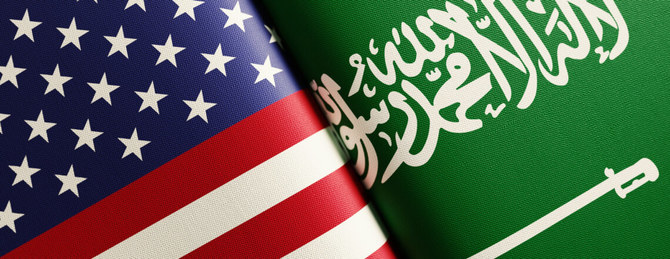
The White House has confirmed that US President Joe Biden will visit Saudi Arabia this July in what will be his first trip to an Arab or Muslim country. Such an overseas journey could not be timelier: By meeting the Saudi leadership in Jeddah, the US leader can reinvigorate an alliance — one of America’s oldest — that is needed more than ever.
Policymakers may be primarily fixated on the global supply of oil, as well as the war in Ukraine and questions over the future of the Joint Comprehensive Plan of Action, or nuclear deal, with Iran. It is understandable that at a time of record gas prices, Americans cannot help but concentrate on the pain in their wallet each time they fill up their car. Likewise, it makes sense that Saudis are prioritizing the exciting opportunities of Vision 2030, as well as security needs stemming from the Houthi drone attacks that have repeatedly targeted population centers and civilian infrastructure in recent years.
But when Biden meets King Salman and Crown Prince Mohammed bin Salman, a narrow American and public focus on these security and economic matters would be a lost opportunity for both countries, the region and the planet.
We cannot forget that the US-Saudi partnership of more than 80 years has never been solely transactional, or about just oil and defense needs. From fighting global communism to repelling Saddam Hussein, and crushing Al-Qaeda and Daesh, the relationship at its core has been about shaping a safer, more secure and more prosperous world.
One way in which Saudi Arabia more recently has changed its neighborhood for the better, and opened up a rich and still largely unexplored space of possibilities, is through interfaith dialogue.
Americans are largely unaware that the Kingdom has pioneered many of the breakthroughs in tolerance and understanding that have so profoundly shaken the modern Middle East.
Efforts began with King Abdullah, through a global interreligious conference he hosted in 2008, followed by his interfaith initiative address at the UN several months later. I was honored to participate at both convocations, in Madrid and in New York.
Four years later, Saudi leaders were largely responsible for launching the King Abdullah International Center for Interreligious and Intercultural Dialogue, a multinational forum for open dialogue across faiths. The center’s work has endured beyond the late king, and every day it works to strengthen global voices of tolerance.
Some of the most exciting changes today are happening within the Kingdom itself.
“The winds of tolerance have never been stronger. And at the center stands Saudi Arabia.”
Rabbi Marc Schneier
The Vision 2030 transformation plan focuses on economic diversification, but does not end there. It calls for wholescale societal transformation, including the development of a robust cultural tourism sector, greater freedom for women and, closer to my lane, greater religious tolerance.
Saudi Arabia has invested great resources in revamping its educational materials to be free of the legacy of anti-Semitic references. The government has succeeded in enforcing a zero tolerance policy for preachers of hate throughout the country. The once notorious religious police have been defanged.
Abroad, we see the nongovernmental, but Saudi-led, Muslim World League holding court with not only Muslims, but also Christians, Sikhs and Buddhists. It also has engaged deeply with Jews and even commemorated the horror of the Holocaust at Auschwitz. I am heartened that a whole generation of Saudis is growing up free of the falsification of history.
This embrace of a new pluralism opens up so many new opportunities for not only economic cooperation, but also friendships and love between peoples as well. I find great optimism in the crown prince’s statements that he sees Israel as a “potential ally,” provided the international community finds a just and equitable solution to Palestine. It is now no longer entirely unrealistic to imagine diplomatic relations at some point in future, even if significant work remains.
Biden should pay tribute to this evolution in thinking in Saudi Arabia and look for ways to capitalize on the new realm of possibilities that now exists. It makes sense, of course, that his overriding geopolitical concern is on ensuring the Kingdom’s close cooperation with the US and other Western countries, more so than with the closed societies of China and Russia.
But Saudi Arabia’s outreach to new communities and its growing determination to serve as a beacon of intercultural understanding could prove to have even more far-reaching benefits in a region that has known too much conflict and strife for too many years.
A renewed US-Saudi alliance on the interfaith level could have ripple effects on everything from conflict resolution to the protection of minorities throughout the Middle East. And given Saudi Arabia’s leadership role in the Islamic world, this partnership could be felt even further afield.
As a longtime interfaith diplomat in the Gulf, I can say the winds of tolerance have never been stronger. And at the center stands Saudi Arabia. With the US at its side, the Kingdom can exert a powerful influence for good on hundreds of millions of people who look to it for spiritual and moral guidance. This is an opportunity that no US leader should ignore.
Rabbi Marc Schneier is president of the Foundation for Ethnic Understanding.
Copyright © 2025 Foundation For Ethnic Understanding. All rights reserved. | Privacy Policy